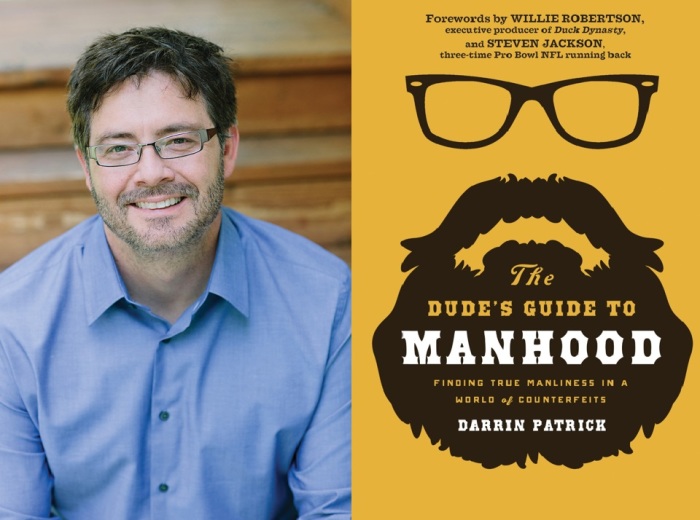Why Do Guys Isolate Themselves and Suck at Building Relationships? Pastor Explains in 'Dude's Guide to Manhood'
One of the seminal moments of Darrin Patrick's life came when he was just three-years-old.
Years after removing himself from being an active presence in Patrick's life, one night his father opened up to his son on why he had checked out.

"When you were about three years old we were all at the dinner table and you were playing around with your food. So I told you to knock it off and eat your damn green beans," Patrick recounted his father's words.
"Your mom and your sisters didn't understand that I was trying to help you become a man. Darrin, men eat what is put before them! I wanted you to be a man and quit playing around at dinner. But every time I tried to coach you, your mom and your sisters started yelling at me, saying I was being too hard on you. I should just leave you alone. So I said, 'Fine, I will leave him the hell alone. You raise him.'"
While the father-son relationship did not completely dissolve at the dinner table, as Patrick shares in the beginning of his new book, The Dude's Guide to Manhood: Finding True Manliness in a World of Counterfeits, the fact that his father spent little time showing his son how to grow into new roles and take on increased responsibility, left him ill-equipped to develop into an emotionally mature, relational adult.
Patrick, who currently pastors at The Journey, in St. Louis, Mo., and serves as an MLB chaplain for the St. Louis Cardinals, believes that an unhealthy father-son relationship is the root of many of the inter-personal struggles that plague men today.
"Most guys did not have a healthy relationship with their dad meaning they weren't equipped to be a man who shares his life with other men because that didn't happen with their dad," Patrick told The Christian Post. "And then, life happens…they get married and have kids and it's just like 'I barely have a relationship with my wife and kids, how am I going to have [one with] other men in my life?'"
Once a man is accustomed to the lack of community he will eventually resign himself to it, said Patrick.
"After you go through a few seasons where you aren't being challenged, being encouraged, being known by other men, than it just becomes natural. [You just start thinking,] 'If it's going to be, it's up to me. I'm on my own here," said Patrick. "I don't think it's intentional for most guys. I think it's a byproduct of the time apart from healthy relationships.'"
Although Patrick is a Christian, he wrote his book for the "normal everyday men," "who are trying to live their lives and figure out how to be successful but really don't have a lot of other guides in their life."
Patrick challenges his readers to cultivate discipline and contentment, better understand and handle their emotions, and nurture personal devotion to their spouses, knowing that his audience may not often crack open a book or find themselves in church.
"If you're a young guy—a guy in his 20's, the least likely place for you to be is church," said Patrick, who said that the church plant he started worked to intentionally keep men engaged.
He also pointed to the Cardinals as a model for churches to emulate when investing in men.
"What I have witnessed is that when young guys, rookies come in they are immediately surrounded with coaches and veteran players who help them know 'This is how you handle yourself here. This is how we behave. This is how we practice, This is how we talk to the media," said Patrick. "The Cardinal Way is instilled not just from front office or coaches. It's all throughout the minor leagues and the players know you've got to do it or you're not going to be around that long."
That type of model, Patrick acknowledges is "counter-intuitive" for most churches.
"Most organizations are just looking at talent or 'How can I use people to get the bottom line met? To grow? Be in the pew?' versus 'How can I invest in this young man that God has put in my life?'" said Patrick.
Patrick quoted a phrase he had heard several years ago to summarize his point.
"We don't want to use people to get ministry done; we want to use ministry to get people done," he said.




























